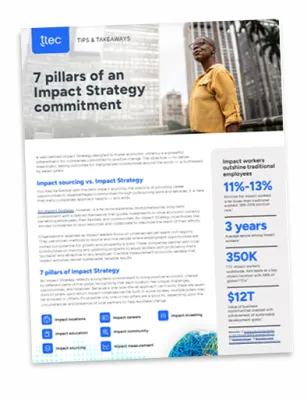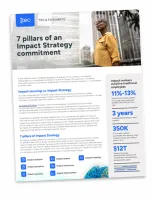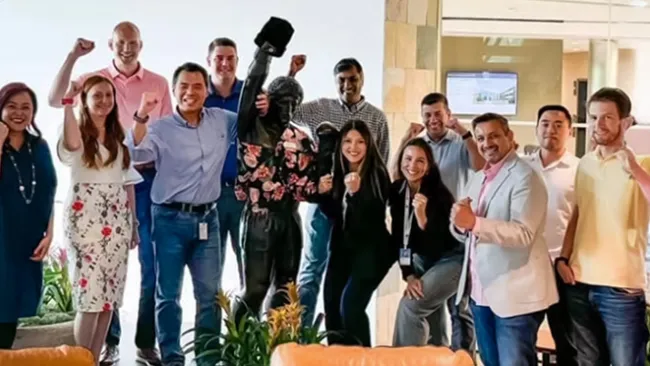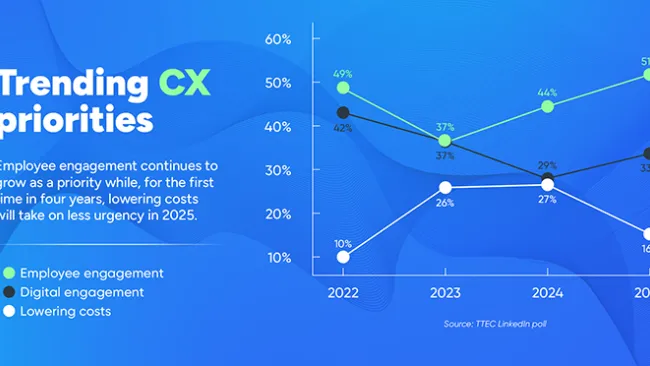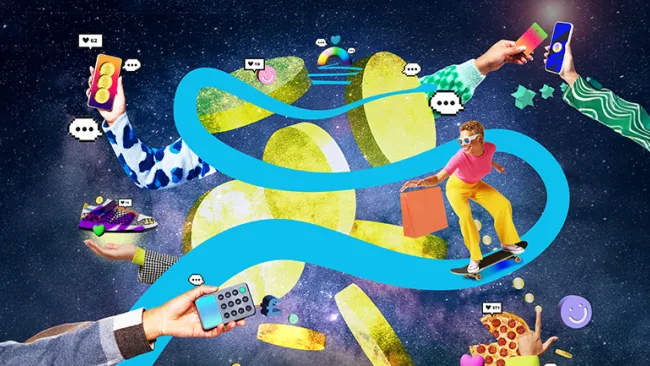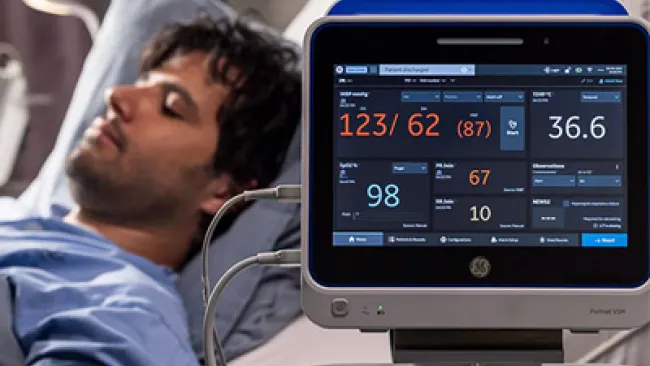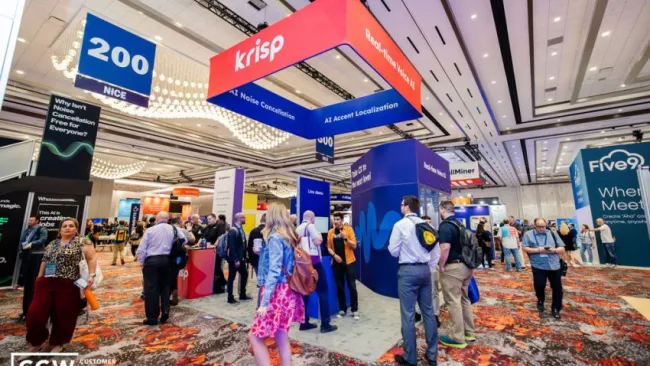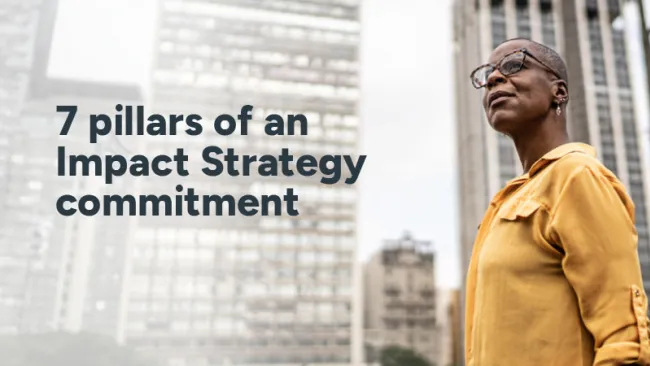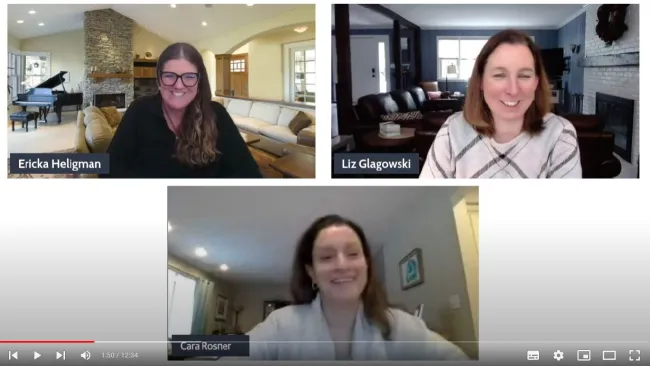As the COVID-19 pandemic drags on, prevention guidelines and restrictions can feel incredibly challenging. Eric Yaverbaum, CEO of Ericho Communications, knows firsthand what it is like to be stricken with the coronavirus while leading a company. He shared key insights and lessons for helping employees combat COVID-19 fatigue.
Key Takeaways:
- Especially during a crisis, employees want transparency and communication from their leaders.
- It is not always obvious when employees need help so a little empathy can go a long way.
- It's leadership's job to spread calmness—not chaos.
Transcript:
JA: Hi, welcome to the CX Pod. I'm Judith Aquino. As we enter the 9th month of the COVID-19 pandemic, there have been more than 70 million COVID-19 infections worldwide and 1.5 million deaths caused by the disease. And it’s not over. States across the U.S. are adding new restrictions as COVID-19 case rates continue to rise.
As the pandemic drags on, COVID-19 prevention guidelines and restrictions can feel like more and more of a challenge. Today we'll be discussing strategies that business leaders can use to help employees combat COVID-19 fatigue. Joining me in this discussion is Eric Yaverbaum. Eric is the CEO of Ericho Communications and he's the author of Leadership Secrets of the World's Most Successful CEOs. Welcome to the show, Eric!
EY: Thank you so much for having me.
JA: So here we are in the ninth month of the pandemic and from what I understand, you contracted the coronavirus infection. Can you tell me what was it like recovering from it?
EY: Awful. it's as bad as you may have heard. You know, I was in bed for 29 days. I was pretty ill, had an oxygen tank, you know, in my place I needed oxygen for 90 days. I had five nights where I didn't know if I could get air into my lungs. I mean, that's five nights in a row where I'm thinking it was the last breath. So, you know not to be overly dramatic, but it's awful. The thing about it is, is that I stayed in bed. I took care of myself. I never, for a second lost hope. I was very, very transparent about my particular set of circumstances and in a 40-year career, this wasn't the thing I wanted to be known for, for being, you know, the sick guy in bed. But I wanted people to know that there was help. You can get better, but take it serious, like, and listen to what people, government officials are telling you to do, as confusing as that might be. Let's get this under control. You don't want what I had.
JA: And so from your experience being a patient and an employer, what would you say was key to maintaining employee morale?
EY: Leadership has to instill a little bit of hope, a little bit of confidence. You got to lean in, you got to make sure that you're very, very transparent. My personal life in 40 years of being in the news has never been discussed nearly to the degree that it is now. I think it's important that people know about that. I'm just like you, I don't want to get sick. I don't want my neighbor to get sick. I don't want anybody in my family to get sick and I'm concerned I mean, who wouldn't be afraid now, but I'm also pragmatic and I'm a realist and I've been inspired by some historical figures in my life. Some of them, you know, I've represented. And, you know, I was always struck by Mr. Rogers, Fred Rogers’ testimony before Congress in 69, before there even was a PBS. And, you know, he said that in, in times of trouble, look for the helpers. If you see that they're there you'll know there's hope. And I just want to be a helper.
JA: So your headquarters is based in New York city, I believe. Right. And so what's your outlook for the coming year? When do you expect companies to return to pre-pandemic levels of business?
EY: I think they might not. I think it's going to be different. Look, I'm biased. I think New York City is the greatest zip code on the planet, but yeah, we talk a little too much in New York. I don't think life will resume as it once was. I think it will be different in my industry for what we do. We actually don't need those fancy conference rooms. We don't need to pay the rent that we paid in the old days. We don't need it as long as we can stay in touch, watch each other's backs, play, you know, each of our individual roles. And I think that a lot of companies and we do, but my company not to say that many other companies aren't doing exactly the same.
And these are very, very difficult times. I don't take it for granted that, you know I got heat and I'm going to have dinner tonight. Don't take it for granted at all. It's very, very difficult times out there, but I think real estate is going to have to re-imagine itself. A lot of companies are going to probably be like mine, if they prosper during this time and say, why do I need to spend so much money on rent?
JA: And would you say that CEOs will be the ones setting the example for the rest of their company? Like their behavior will set the pace?
EY: Well, I, I think, you know, look, I've spent four decades studying leadership and I've been a leader. And I've been around all sorts of historic characters. Leadership is a lot like parenting. It's not a, you know, do as I say role, it's a do as I do, people will actually follow the leader. They would like to see, you know, a leader who has a track record that is consistent, that behaves the same in times of strife as they do. And, you know, in times of prosperity they would like to be communicated with regularly. And they, people want to feel some sense of stability. You know, this whole illusion of control. Everybody always wants to know about tomorrow. The truth be told I have no idea, neither does anybody. But you know, I'll flat out say that, and I'm not, I'm not going to presume to, you know, tell anybody, what the future holds. I have no idea. I just tell him I'm here again tomorrow. That'll be fun. Just like today is fun. I was happy to wake up. I think that people look at the behavior of their leaders and that is what they mimic. If it's genuine, if it's disingenuous, don't expect to inspire people.
JA: So a vaccine is on the horizon. Do you think it's the employer's role to require employees to get vaccinated?
EY: No, definitely not. I think that, look, I'm a perfect example. I have a little bit of medical history from decades in my family. So I kind of am a guy who studies data and science and trials. And because it personally impacted me will this vaccine fast be the one, I have no idea. I know I got antibodies. I tested positive for them twice. In the last six months, it has emboldened me to be able to do things which includes respectfully wearing a mask in public. I don't want to instill fear in anybody, which I think a lot of people do with this, you know, quote unquote mask friction. I would like to instill comfort, not fear but that's going to be up to every individual. Personally, if I still have antibodies, I'm going to take a pass on the first round of the vaccine. I would never tell my people what to put in their bodies. That’s completely up to them.
JA: And so, just to recap, it sounds like the main takeaways for leaders should be to be transparent, be pragmatic and continue communicating as much as they can.
EY: Well, I, you know, I think a little empathy goes a long way. I mean, the people who need help, they look a lot like the people who don't need help you know, I think it's leadership's job to share calm, not chaos and look, all of us, we've all been dealt, you know, some surprising new cards and how we learned to play them, you know? That's where the, you know, the magic can happen. I intend to play the hell out.
JA: Well, Eric, thanks so much for speaking with me. I really appreciate it.

